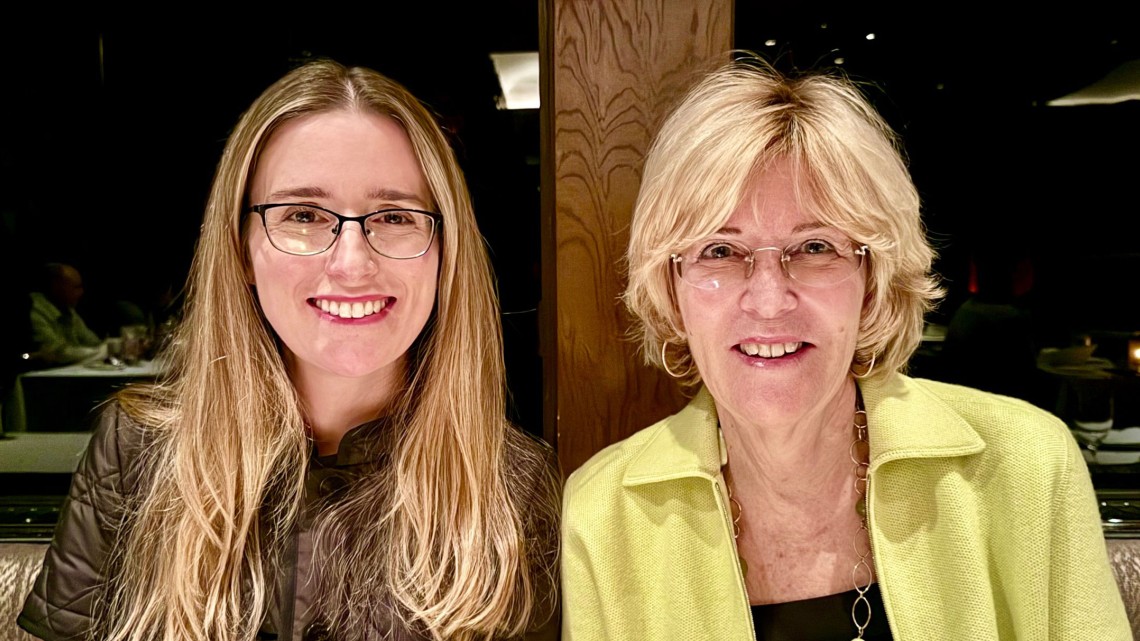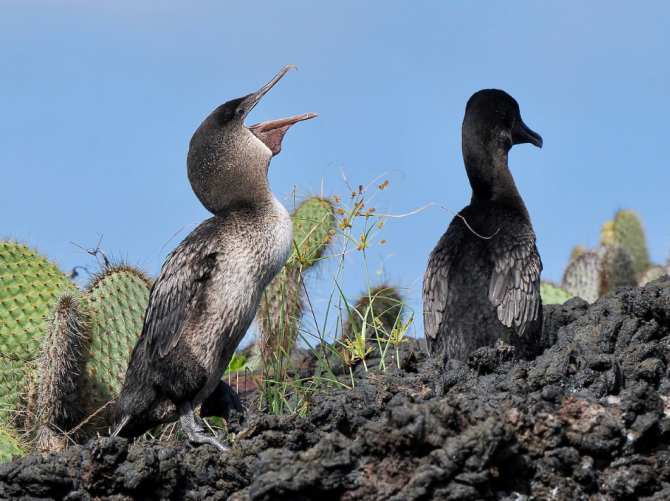
Anne Macaulay (left), Linda Macaulay, and the Macaulay Family Foundation are longtime supporters of the Cornell Lab of Ornithology.
News directly from Cornell's colleges and centers
Gift intended to make what’s great even greater
By -Pat Leonard
The “magical” Merlin Bird ID app from the Cornell Lab of Ornithology has been enchanting users since it was introduced in 2014. Its real magic is in the science behind the scenes to create the captivating experience of identifying birds by sound or from photos. Drawing from the Lab’s massive eBird database, the app can also narrow down an ID based on day and location information put in by the user.
Developers in the Lab’s Macaulay Library archive, where Merlin was born, believe the app can do more. That’s what Linda Macaulay and the Macaulay Family Foundation are banking on with their latest gift, combining funds from the foundation with a personal gift from Linda Macaulay, totaling 10 million dollars during the next 5 years.
“Our last gift really helped get the Merlin app up and running,” says Anne Macaulay, Linda’s daughter and director of the Macaulay Family Foundation. “We’re hoping this latest gift will help expand Merlin and eBird so they can reach even more people. It’s important to invest in back-end systems. It might not be the most visible or the sexiest thing but if the back end doesn’t work then nothing works!”
Linda Macaulay has long been entranced by the sounds of the wild, especially birds. Thousands of her sound recordings are housed in the archive named for her family. She says it’s time to reach out to more people in other parts of the world and for Macaulay Library to become the repository of choice for sound recordists everywhere.
“We need to grow the world birding community and create ways for them to share their sightings as well as their media,” she says. “We need to develop a way for scientists and others to curate their own audio collection. We have never had the resources to do that andwhen the recordist retires that material is lost.”
Amassing as many recordings of as many bird species as possible will allow the Macaulay Library’s Merlin team to use its machine learning model to train the app to recognize more birds in more places. It takes at least 100–150 recordings of a bird’s varied vocalizations to teach Merlin to recognize the species.
“The Macaulay Library is great right now, but it can be even greater,” says Macaulay Library director Mike Webster. “This gift is really going to allow us to scale up at the global level. The most popular use of Merlin by far is the sound ID feature, which isn’t yet available in major parts of the world. We need to change that if we want to go from data, to science, to conservation action.”
Webster says expanding Merlin’s reach means hiring more developers, programmers, and AI experts. It also means finding the right in-country partners to learn what people there want and need.
“People like to share so that’s one of the features we’re expanding for Merlin and eBird,” adds Linda Macaulay. “But the other thing that’s even more important is the more data we get and the more we can make our systems robust, the better the quality of the data.”
Rapid advances in digital technology have turbo-charged the growth of the Cornell Lab and the Macaulay Library. Only 15 years ago, the archive had about 200,000 audio recordings, but it now has more than 2.2 million, plus millions more holdings in still photos and video clips.
“I think the Lab has always embraced technology in a truly phenomenal way,” Anne Macaulay says. “I have no idea what they will be doing 10 years from now but I have absolute faith that it will be amazing!”
Media Contact
Get Cornell news delivered right to your inbox.
Subscribe

